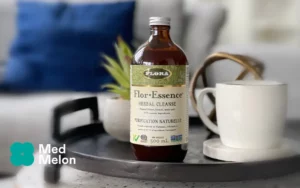Scientific Names of Carrot: Daucus carota L. var. sativa [Fam. Umbelliferae]
Forms:
Fresh, whole root; root carotenoid extract (liquid or dry)
Traditional Usage:
– Aging
– Antioxidant
– Breathing Difficulties
– Cataracts
– Cellular Regeneration
– Lowering Cholesterol
– Cleansing
– Constipation
– Detoxifying
– Diarrhea
– Eyesight Problems
– Liver Problems
– Skin Problems
– Stroke Prevention
– Vascular Disorders
– Wrinkles
Overview:
The cultivated carrot, Daucus carota L. var. sativa, belongs to the family Umbelliferae. Carotenes, including alpha, beta and many other carotenoids are the orange pigments in the root – prolific sources of provitamin A. Based on epidemiological studies, eating carrots daily can dramatically prevent lung disease (including in smokers), strokes and vascular disease. A study of almost 90,000 female nurses conducted at Harvard showed that women who ate five servings of carrots per week suffered 68% fewer strokes than those who ate carrots less than twice a month. Another study showed that a daily snack of two carrots lowered cholesterol levels by 10-20% within three weeks – attributed to the fibre, pectin. Carrots can also be used to stop diarrhea, boost the immune system and prevent macular degeneration. A ten year study done by Harvard found that by getting 50mg of carotenoids every other day (equivalent to seven good-size carrots), you can significantly reduce the risk of abnormal growths, vascular disease and cataracts. In a study to assess whether consumption of vegetables containing different carotenoids could protect against DNA damage and oxidative DNA damage, subjects consumed a low carotenoids diet for 2 weeks, followed by daily consumption of 330 ml tomato juice with 40 mg lycopene (weeks 3 and 4), 330 ml carrot juice with 22.3 mg beta-carotene and 15.7 mg alpha-carotene (weeks 5 and 6), and 10 g dried spinach powder with 11.3 mg lutein (weeks 7 and 8). Supplementation resulted in a significant decrease in endogenous levels of strand breaks in lymphocyte DNA but only carrot juice significantly reduced oxidative DNA damage. It was also found that a low-carotenoid diet reduces T-lymphocyte functions and increases LDL oxidation but that in these cases, only the addition of tomato juice (not carrot juice or spinach) quickly reversed these problems (within two weeks).
Active Ingredients:
Carrots, raw (Proximates per 100 grams of edible portion) contain: Water 88g; Protein 1.0g; Total lipid (fat) 0.2g; Carbohydrate, by difference 10.1g (mostly as starch); Fiber, total dietary 3.0g; Ash 0.9g; Minerals: Calcium, 27mg; Iron, 0.50mg; Magnesium, 15mg; Phosphorus, 44mg; Potassium, 323mg; Sodium 35mg; Zinc, 0.20mg; Copper, 0.05mg; Manganese, 0.14mg; Selenium, 1.1mcg; Vitamins: Vitamin C, total ascorbic acid 9.3mg;
Thiamin 0.1mg; Riboflavin 0.06mg; Niacin 0.93mg; Pantothenic acid 0.2mg; Vitamin B-6 0.15mg; Folate, total (food) 14mcg; Vitamin A, 28,129 IU; Vitamin A, RE 2813mcg;
Phytosterols, 12mg. Flavonoids including: luteolin (37.5 mg/kg), myricetin, quercetin and kaempferol. Amino acids: Aspartic acid 0.14g; Glutamic acid 0.2g and others.
USDA Nutrient Database for Standard Reference, Release 14 (July 2001).
Suggested Amount:
The daily dose of carrot is 2-4 good-size carrots per day or 330ml of carrot juice or as needed according to nutritional requirements. Cooking carrots increases the blood plasma levels of beta carotene (Total and all-trans (but not cis)) an average three times that associated with consumption of the same amount of beta-carotene from these vegetables in the raw form.
Drug Interactions:
None known
Contraindications:
None known. Synthetic beta carotene is contraindicated in smokers. It is best to stick with carrots and/or other natural sources of carotenoids because synthetic beta-carotene supplements (100% All-trans isomer) do not confer all of the same health benefits. At least two different clinical trials of supplemental beta-carotene (using synthetic 100% All-trans isomer) for helping smokers to prevent lung disease have been stopped prior to completion due to a 27% increased risk of death from lung disease among participants.
Side Effects:
Excess Vitamin A in the diet can cause orange skin coloration and liver damage. Most multi-vitamin pills supply beta-carotene because it is much safer than pre-made vitamin A. It is best to stick with carrots and/or other natural sources of carotenoids because synthetic beta-carotene supplements (100% All-trans isomer) do not confer all of the same health benefits. At least two different clinical trials of supplemental beta-carotene (using synthetic 100% All-trans isomer) for helping smokers to prevent lung disease have been stopped prior to completion due to a 27% increased risk of death from lung disease among participants.
References:
Bub A, Watzl B, Abrahamse L, Delincee H, Adam S, Wever J, Muller H, Rechkemmer
G. 2000. Moderate intervention with carotenoid-rich vegetable products reduces lipid peroxidation in men. J Nutr 2000 Sep; 130(9): 2200-6.
Carper, J. 1993. Food Your Miracle Medicine. HarperCollinsPublishers, 10 East 53rd Street, New York, New York 10022-5299. Pp. 1-528.
Duke, J. 1997: The Green Pharmacy, The Ultimate Compendium of Natural Remedies from the World’s Foremost Authority on Healing and Herbs. pp. 158; 314; 500. Rodale Press.
Pool-Zobel BL, Bub A, Muller H, Wollowski I, Rechkemmer G. 1997. Consumption of vegetables reduces genetic damage in humans: first results of a human intervention trial with carotenoid-rich foods. Carcinogenesis 1997 Sep; 18(9): 1847-50.
Watzl B, Bub A, Brandstetter BR, Rechkemmer G. 1999. Modulation of human T-lymphocyte functions by the consumption of carotenoid-rich vegetables. Br J Nutr 1999 Nov; 82(5): 383-9.




